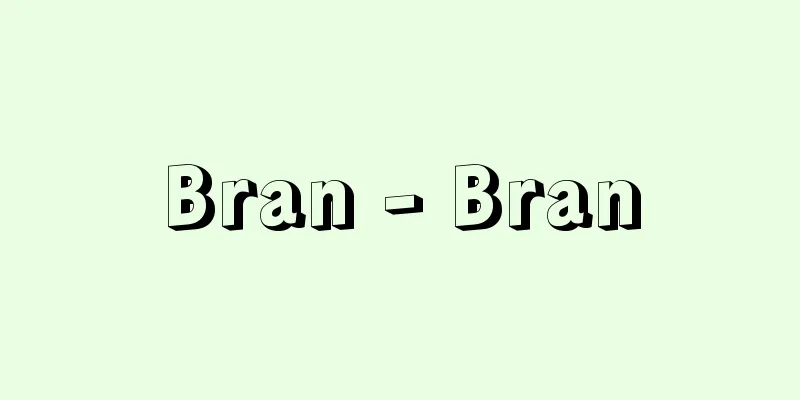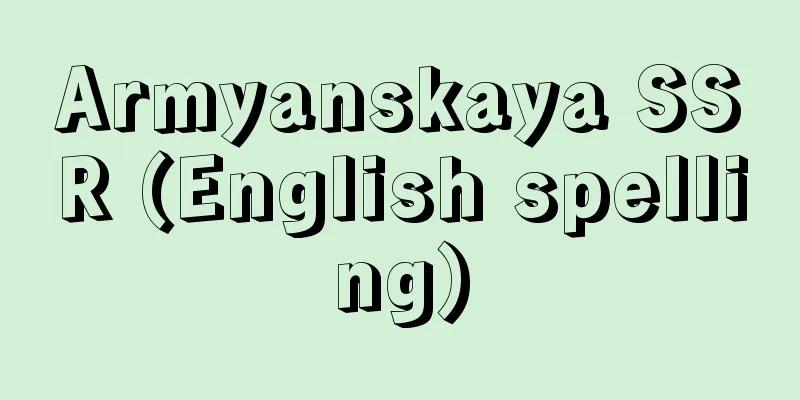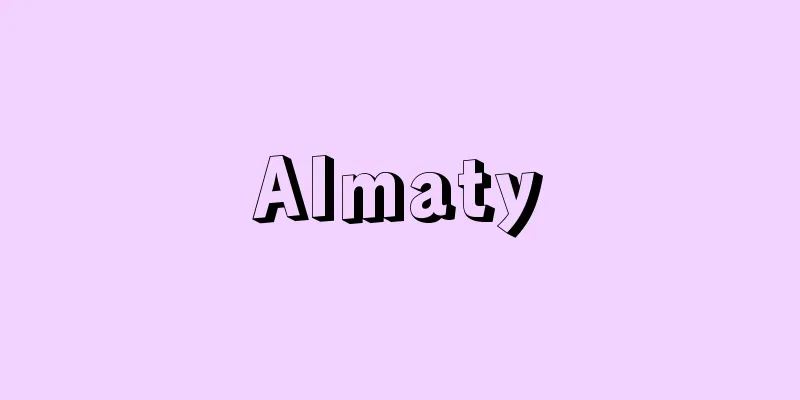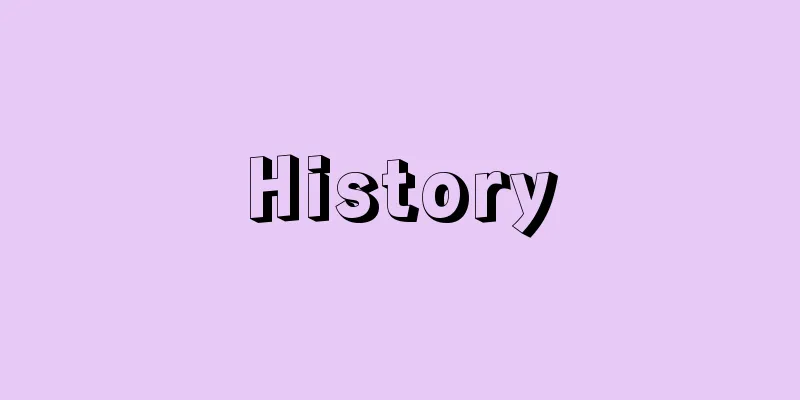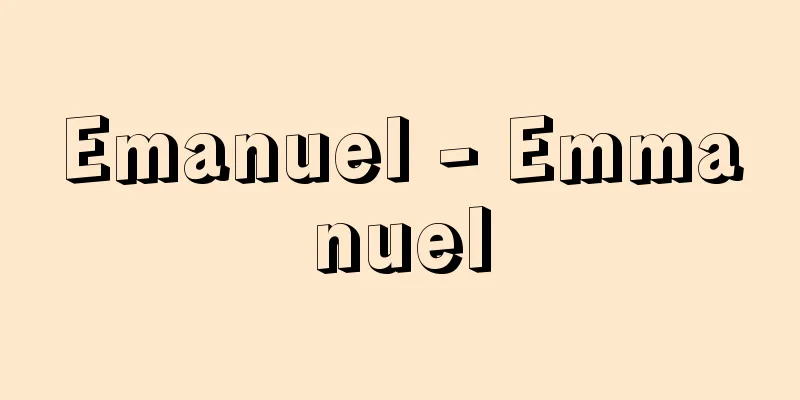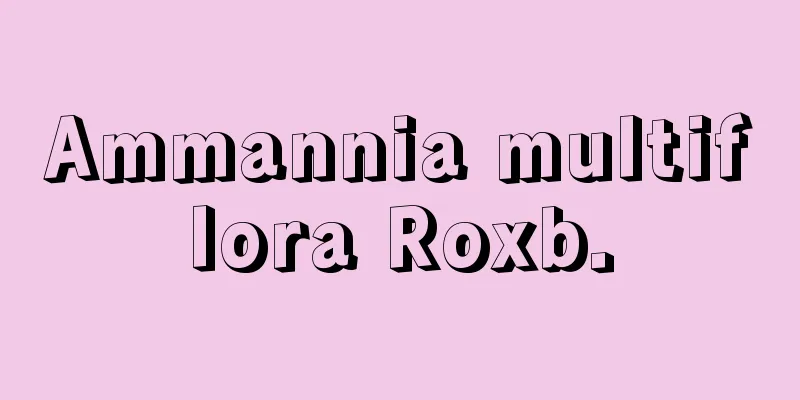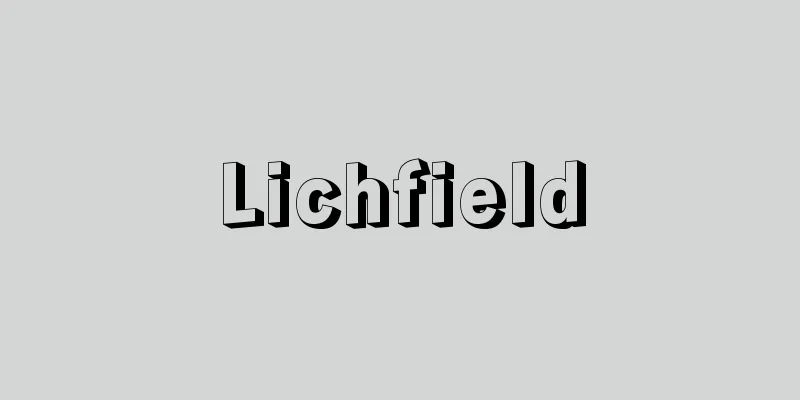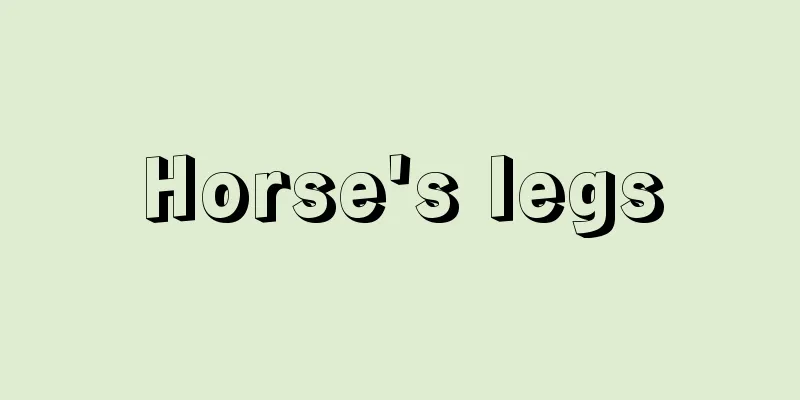Albania - Albania (English spelling)
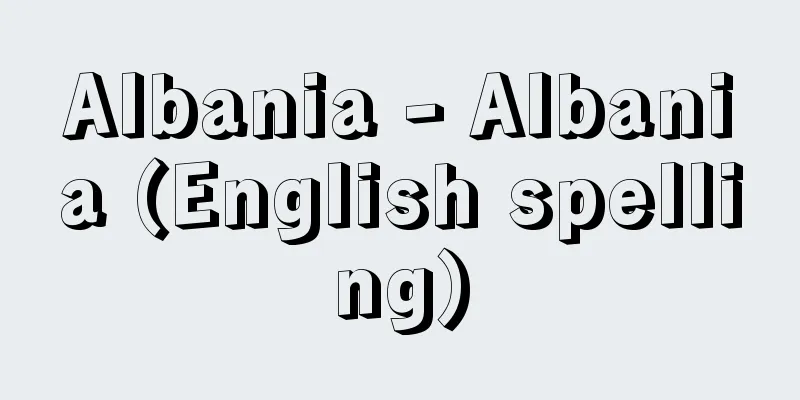
|
A republic located in southeastern Europe, in the southwestern part of the Balkan Peninsula. Its official name is the Republic of Shqipërisë (Republika e Shqipërisë). Shqipëris means "Land of the Eagle", and the two-headed eagle is used on the national emblem and flag. It borders Kosovo to the northeast, Montenegro to the northwest, the Republic of North Macedonia to the east, and Greece to the south, and faces the Adriatic Sea to the west, with Italy on the opposite shore. It has an area of 28,748 square kilometers, about 1.5 times the size of Shikoku. It has a population of 3,069,275 (2001 census). Its per capita GDP is $3,360 (2007). It is divided into 36 administrative districts (counties) including the capital city of Tirana. After World War II, Russia adopted a strict Stalinist communist system and pursued a kind of isolationist policy while other communist countries embarked on reforms. However, since 1990, like other Eastern European countries, multi-party elections have been held, a non-communist government has been established, Russia has become a republic, and it has been pursuing pro-Western policies. [Atsushi Saito] NatureThe country is long and narrow, stretching 340 km from north to south and 150 km wide at its widest point from east to west. Apart from the coastal plains, the rest of the country is mountainous and rugged, with 70% of the country having an elevation of over 300 meters. The border areas with Kosovo, Montenegro, and the Republic of North Macedonia are lined with 2,000-meter-high mountains of the Dinaric Alps, including Mount Korab (2,751 meters). The Drin River, which flows into the Republic of North Macedonia, flows 280 kilometers through the country, branches off near its mouth, and empties into the Adriatic Sea along with several other rivers, including the Bune River. Lake Shkoder (approximately 360 square kilometers) in the north, Lake Ohrid in the southeast, and Lake Prespa are all on the border. The coastal areas have a warm Mediterranean climate, with rare snowfall. The inland areas have a continental climate, with snowfall in winter. The average annual precipitation is over 1,000 mm nationwide. The highest temperatures in summer exceed 30°C, while the lowest temperatures in winter are around 0°C on the coast and below -10°C in inland cities. Over 40% of the country's land area is cultivated land and pastures, and the same proportion is forest, with oak, beech, and pine trees prevalent. [Atsushi Saito] GeographyIn the capital, Tirana, the textile, chemical and food industries are well developed, and their production volume accounts for about one-quarter of the total mining and manufacturing production. In addition, the central port city of Durres has chemical and light industries, and in the northern city of Shkoder, tobacco and metal industries, but the production facilities are severely deteriorated, and many factories have not been in operation since the market economy began in 1990. Albania is blessed with underground resources, and produces oil in the coastal areas of the center and south, and chromium, iron, copper, nickel, etc. in the mountainous areas of the north and east, and refining and smelting facilities have been built in nearby cities accordingly. In addition, many hydroelectric power plants have been built in the north and east, taking advantage of the mountainous terrain. Agriculture is mainly carried out in the coastal plains, and wheat, cotton, fruits, tobacco, potatoes, tomatoes, olives, and sugar beets are the main crops. [Atsushi Saito] historyAlbanians claim to be the descendants of the ancient Illyrians (the indigenous people of the Balkans who perished in the 2nd century BC), but their exact origins are unknown. The current Albanian territory was part of the ancient Roman Empire, then the Eastern Roman Empire, and from the 7th century onwards it was ruled by the Byzantine Empire, the Bulgarian Empire, the Latin Empire, and the Serbian Empire. The name Albanian first appeared in the history books of the Byzantine Empire in the 11th century. In the 14th century, Albania was incorporated under the control of the Ottoman Turks following their invasion of the Balkans, and for the next five centuries it was ruled by the Turkish Empire, during which the inhabitants were gradually converted to Islam. In the middle of the 15th century, a powerful clansman named Skanderbeg revolted against Turkish rule, and continued to repel large Turkish armies for 25 years from 1443. Skanderbeg is today a national hero, and the current national flag is derived from his flag. In 1878, amid rising national consciousness, the Albanian National League (Prizren League) was formed in Prizren (now a city in the southern part of the Republic of Kosovo), and clashed with the Turkish army. In 1912, following Turkey's defeat in the First Balkan War, a group led by Ismail Qemali (1844-1919) declared independence in Brora and organized a provisional government. In 1913, the great powers decided at a conference of ambassadors in London to grant Albania independence under the patronage of the great powers, demarcated the borders, and in 1914 sent the German nobleman Wilhelm von Wied (1876-1945) as King of Albania. However, he was unable to take root in the country, and left shortly after the outbreak of World War I, and in the midst of the war, the country was occupied by Austria and then Italy. In 1920, the country expelled the Italian army, regained its independence, and joined the League of Nations. Later, Ahmet Zogu, a landowner, rose to power and was briefly replaced by the progressive Fan Stilian Noli (1882-1965) government (1924), but returned to power and became president, and in 1928 he proclaimed a monarchy and became King Zogu I. Economically, the country became increasingly dependent on Italy, and in 1939 it was annexed by Italy, with Zogu going into exile. During World War II, the country was occupied by Germany after Italy's surrender. In 1941, the Communist Party of Albania was formed and began a partisan struggle. In October 1944, a provisional government was established with Enver Hoxha as its leader. By the end of November of the same year, Albania had liberated the entire country by its own efforts, and in January 1946, it declared itself a People's Republic and became a socialist state. In 1961, Albania left the Soviet bloc during the Sino-Soviet dispute and became an ally of China, receiving assistance from it. In 1978, China cut off its assistance due to an ideological dispute, but diplomatic relations continued. Since then, Albania has refused all foreign assistance and pursued a policy of isolation and self-reliance. However, after Hoxha's death in 1985, the change in the international situation and the worsening economy made it difficult to continue the isolation and self-reliance policy, and Ramiz Alia (1925-2011), the party's first secretary who succeeded Hoxha, promoted a gradual open-door policy. In 1990, influenced by the democratization of Eastern European countries, and with the large-scale exodus of refugees from the country to Italy and Greece, Albania was forced to introduce a major democratization policy. In 1991, the country's name was changed from the Socialist People's Republic of Albania to the Republic of Albania, and a presidential system was introduced. The first multi-party election since the war was also held, in which the Socialist Party, formerly the Labor Party (Communist Party), won and a national unity government was established with the Democratic Party and other opposition parties. However, the Democratic Party, which had been gradually gaining strength, defected from the national unity government, so another election was held in the spring of 1992, in which the Democratic Party won nearly 70% of the seats, and a Democratic Party government was born with Sali Berisha (1944- ) as president, bringing an end to the long-running communist government. [Atsushi Saito] PoliticsSince the introduction of a multi-party system at the end of 1990, one-party rule by the Workers' Party has been eliminated and the country is now a parliamentary democratic system based on direct elections. The legislative body is the People's Assembly, which is unicameral with 140 members and a four-year term of office. The Council of Ministers is the highest executive body equivalent to a cabinet, with its chairman equivalent to the prime minister and its vice-chairman equivalent to a deputy prime minister. The president, who is also head of state, commander-in-chief of the armed forces and chairman of the Republic's National Defense Council, is elected by the People's Assembly and serves a five-year term. In the 1996 People's Assembly elections, the Democratic Party won a landslide victory despite the boycott by the Socialist Party and other opposition parties, but in the spring of 1997, as the country fell into chaos due to a pyramid scheme scandal, President Berisha forced his own reelection by the People's Assembly, while the Democratic Party cabinet of Alexander Meksi (1939-) resigned and a provisional national unity cabinet headed by Socialist Bashkim Fino (1962-2021) was established. Then, in June 1997, under the provisional cabinet of Fino, the People's Assembly elections were held and the Socialist Party won a landslide victory, and a coalition government centered on the Socialist Party was formed. Following Berisha's resignation as president, Rexhep Meidani (1944-), from the Socialist Party, was elected as his successor in July. A new constitution was enacted in 1998. The Socialist Party won the local elections in October 2000 and the general elections in June and July 2001. In June 2002, following the expiration of Meydani's term, a presidential election was held, in which Alfred Moisiu (1929- ) was elected and took office as president in July, while Socialist Party leader Fatos Nano (1952- ) became prime minister. In the parliamentary elections of July 2005, the opposition Democratic Party made great strides, with Democratic Party leader Berisha becoming prime minister, forming a coalition government centered on the Democratic Party, and taking over from the Socialist Party. In July 2007, Deputy Democratic Party leader Bamir Topi (1957- ) was elected president to replace Moisiu, whose term had expired. In foreign policy, Turkey has made a major shift from the isolationist policy of the communist regime to working to strengthen ties with Western countries, the United Nations, the World Bank, and other international organizations. Turkey is particularly keen to join the EU (European Union), emphasizing its position in Europe. Turkey joined NATO (North Atlantic Treaty Organization) in April 2009, and is aiming to join the EU soon. In terms of relations with neighboring countries, Turkey is focusing on the autonomy and human rights issues of the ethnic Albanian minority living in Serbia, Montenegro, the Republic of North Macedonia, and Greece. Turkey has been in conflict with Serbia over the issue of Albanians in Kosovo before independence. Turkey joined the Organization of the Islamic Conference in 1992, and is strengthening its ties with Islamic countries. Turkey joined the Council of Europe in 1995. Turkey joined the World Trade Organization (WTO) in 2000. In terms of national defense, the military has been modernizing since 1992 with aid from the United States and other countries, but it is in a state of collapse after many heavy weapons and ships were seized by armed civilian forces during the unrest in 1997. As of 2002, the military's strength was 20,000 in the army, 2,500 in the navy (including 24 combat vessels), and 4,500 in the air force. [Atsushi Saito] Economy and IndustryAfter the Second World War, under the communist regime, Albania adopted a planned economy that aimed to industrialize and modernize agriculture while relying on the support of communist countries. Industrialization progressed rapidly after the war, and mining and manufacturing production, which was small before the war, exceeded agricultural production in 1960, and by 1981 the ratio of industrial and agricultural production was almost 7:3. However, after the break in diplomatic relations with the Soviet Union in 1961 and the deterioration of relations with China in 1978, economic activity stagnated when a self-help policy was introduced. Albania began to transition to a market economy in 1991, but mining and manufacturing production dropped dramatically due to aging facilities and a decline in work morale. The heavy industry sector in particular is in a slump, and many state-owned enterprises are not in operation. Chromium, which once boasted the third largest production and export volume in the world, fell to ninth place in 2002, accounting for 0.5% of world production. On the other hand, light industry sectors such as food and textiles, agriculture, tourism, and public investment are becoming more active. The main industries are agriculture, machinery, mining, and manufacturing. In 2004, the GDP (gross domestic product) was $7.6 billion, the GDP per capita was $2,381, the total trade was $2.62 billion, the total exports were $550 million, and the total imports were $2.07 billion. The main export items are textiles, building materials, and food, while the main import items are machinery, food, and textiles. The currency is the Lek. Agriculture was collectivized during the socialist era, but did not develop to the point of large-scale or mechanized. In 1991, farmland was successfully privatized in conjunction with the introduction of a market economy, and production activities have become more active. Farmers tend to prefer growing fruits, which have a high profit rate. Exports are mainly non-ferrous metals such as chromium and copper, and light industrial products such as shoes and textile products, while imports are mainly industrial products such as durable consumer goods and used cars, and the main trading partners are European countries such as Italy and Greece. Imports far exceed exports, resulting in a swelling trade deficit, and the economic life of the people is heavily dependent on remittances from immigrants working overseas and aid from other countries and international organizations. Commerce has developed rapidly since private ownership was permitted in 1991, with many privately owned shops and trading companies having been established. [Atsushi Saito] societyMore than 95% of the population is Albanian, but there are regional differences in language and customs between the Ghegs in the north and the Tosks in the south. The official language is Albanian, although the standard language is the Tosk dialect. Ethnic minorities include Greeks (2.4%), Macedonians, and Montenegrins (total 0.9%). There are also approximately 2 million Albanians living in Serbia, Kosovo, Montenegro, and the Republic of North Macedonia, and there are approximately 200,000 Albanian migrant workers in Italy and Greece. The population growth rate fell from just over 2% in the 1980s to 1% in the early 1990s due to population emigration, but it is still one of the highest in Europe. Albania has not been able to escape being one of the poorest countries in Europe, and the capital, Tirana, continues to see a large influx of rural people seeking work. In addition, since the introduction of a market economy, the gap between rich and poor has been widening rapidly. Before World War II, 70% of the population were Muslim, 20% Greek Orthodox, and 10% Catholic, but as of 2001, 39% were Muslim, 17% Roman Catholic, 10% Albanian Orthodox, and the rest were other religions or unknown. Religions that were banned during the communist regime were lifted in 1990. [Atsushi Saito] cultureUnder Turkish rule for so long, it cannot be denied that the formation of a national consciousness and the cultural development based on it were delayed. Only one school teaching in Albanian was allowed to be established in 1887. Under these conditions, the "Albanian Renaissance" movement took place mainly abroad in the 19th century, and the most notable of these was Naim Hrashari, author of the epic poem The Tales of Skanderbeg. After World War II, the communist government placed strict control over the arts and strongly promoted the line of socialist realism. It was in this environment that Ismail Kadare (1936- ) published a succession of original poems and novels, earning him worldwide fame. They are said to be quieter and more patient than other Mediterranean peoples, but a patriarchal mentality remains, and the movement to improve the status of women continues. The citizens enjoy movies, television, and evening walks. Soccer is by far the most popular sport. [Atsushi Saito] Relations with JapanDiplomatic relations with Japan were established in 1922 (Taisho 11), but were severed when Albania was annexed by Italy in 1939 (Showa 14). They were resumed after World War II in 1981. Although personnel exchanges and trade volume are currently minimal, Japan is one of Albania's major aid donors. In February 2008 (Heisei 20), Prime Minister Berisha visited Japan. The total amount of trade between the two countries in 2004 was 2.06 million dollars. Total imports from Japan were 1.47 million dollars, with the main import items including machinery and automobiles. Total exports from Albania to Japan were 590,000 dollars, with the main export items including textile products and medicinal herbs. [Atsushi Saito] "Albania" by Shinzo Kiuchi (included in "World Geography 8 Europe III", 1975, Asakura Publishing) " ▽ "Modern World History 24, Modern Balkan History" by Tsutomu Kido (1977, Yamakawa Publishing) ▽ "World History 13, Eastern European History" edited by Toshitaka Yada (1977, Yamakawa Publishing) ▽ "Modern Albania History" by Takashi Nakatsu (1991, Koyoshobo) ▽ "Dictionary of Eastern Europe" edited by Takayuki Ito et al. (1993, Heibonsha) ▽ "Stefanaq Pollo and Arben Puto The History of Albania (1981, Routledge & Kegan Paul)" ▽ "Raymond E. Zickel and Walter R. Iwaskiw Albania, a country study (1994. Federal Research Division, Library of Congress)" [References] | | | | | | | | | | | | | | | | | | | | | | | | | | [Supplementary material] |"> Albania flag ©Shogakukan Illustration/Shogakukan Creative "> Albania location map Source: Shogakukan Encyclopedia Nipponica About Encyclopedia Nipponica Information | Legend |
|
南東ヨーロッパ、バルカン半島南西部に位置する共和国。正称は、シュチペリア共和国Republika e Shqipërisë。シュチペリアは「鷲(わし)の国」の意味で、国章と国旗に双頭の鷲の図柄が使用されている。北東はコソボ、北西はモンテネグロ、東は北マケドニア共和国、南はギリシアに隣接し、西はアドリア海に面し、その対岸にイタリアがある。面積は2万8748平方キロメートルで、四国の約1.5倍の大きさである。人口306万9275(2001年センサス)。1人当り国民総生産(GDP)は3360ドル(2007)。首都チラナ特別市ほか36の行政区(県)に分かれている。第二次世界大戦後、厳格なスターリン型共産主義体制をとって、共産圏諸国が体制改革に乗り出すなかで一種の鎖国政策を進めていたが、1990年以降は、ほかの東ヨーロッパ諸国同様、複数政党制による選挙が実施されて非共産主義政権が成立し共和制となり、欧米寄りの政策を進めている。 [齋藤 厚] 自然南北340キロメートル、東西の最大幅150キロメートルの細長い国で、海岸沿いの平野のほかは起伏に富む山地であり、国土の7割が標高300メートル以上の風光明媚(めいび)な国である。コソボ、モンテネグロおよび北マケドニア共和国との国境地帯にはコラブ山(2751メートル)をはじめディナル・アルプス系の2000メートル級の山々が連なる。北マケドニア共和国から流入するドリン川が国内280キロメートルを流れ、河口付近は分流して、ブーネ川など他の数条の河川とともにアドリア海に注ぐ。湖では北部のシュコーデル湖(約360平方キロメートル)、南東部のオフリド湖、プレスパ湖がいずれも国境上にある。海岸地帯は温暖な地中海性気候で、降雪はまれである。内陸部は大陸性気候で、冬季に積雪がある。年降水量は全国平均で1000ミリメートルを超す。夏の最高気温は30℃を超え、冬の最低気温は海岸で0℃前後、内陸部の諸都市で零下10℃以下となる。国土の4割余りが耕地や牧草地、同じく4割余りが森林で、カシワ、ブナ、マツが多い。 [齋藤 厚] 地誌首都チラナは、繊維、化学、食品工業などが発達し、その生産高は全鉱工業生産の4分の1前後に上る。そのほか、中部の港湾都市ドゥレスでは、化学、軽工業、北部の都市シュコーデルではたばこや金属工業などの産業があるが、生産施設の老朽化が甚だしく、1990年に市場経済化を開始して以降は未稼働の工場も多い。アルバニアは、地下資源に恵まれ、中部と南部の海岸地帯では石油を、また、北部と東部の山岳地帯ではクロム、鉄、銅、ニッケルなどを産出し、それにあわせて付近の都市に精製または製錬施設が建設されている。さらに、北部と東部では、山がちな地形を生かした水力発電所が多数建設されている。農業は、海岸平野部を中心に行われ、小麦、綿花、果実類、タバコ、ジャガイモ、トマト、オリーブ、ビート(テンサイ)などが主作物である。 [齋藤 厚] 歴史アルバニア人は自らを古代イリリア人(バルカンの先住民族、紀元前2世紀に滅亡)の子孫と称しているが、その正確な起源は不明である。現在のアルバニア人の領土は、古代ローマ帝国、ついで東ローマ帝国の版図(はんと)に入り、7世紀以降はビザンティン帝国、ブルガリア帝国、ラテン帝国、セルビア帝国の支配を受けた。なお、11世紀のビザンティン帝国の史書においてアルバニア人の名が歴史上初めて登場する。14世紀にオスマン・トルコのバルカン侵入に伴いその支配下に組み込まれると、以後5世紀間トルコ帝国の支配を受け、住民のイスラム教化が進行した。途中、15世紀なかばに一豪族のスカンデルベグがトルコの支配に抗して蜂起(ほうき)し、1443年以来25年間トルコの大軍を撃退し続けた。スカンデルベグは今日民族的英雄となっており、現在の国旗は彼の旗に由来している。 1878年、民族意識の高まりのなかにプリズレン(現、コソボ共和国内南部の都市)でアルバニア国民連盟(プリズレン連盟)が結成され、トルコ軍と衝突した。1912年、第一次バルカン戦争におけるトルコの敗退に際し、イスマイル・チェマルIsmail Qemali(1844―1919)の率いる一団がブローラにおいて独立を宣言、臨時政府を組織した。1913年、列強はロンドンの大使会議においてアルバニアを列強の後見のもとに独立させることを決め、国境を画定し、1914年ドイツ貴族ウィルヘルム・ウィートWilhelm von Wied(1876―1945)がアルバニア王として送り込まれた。しかし彼は国内に根を下ろしえず、第一次世界大戦勃発(ぼっぱつ)後まもなく国外に去り、戦火のなかで、オーストリア、ついでイタリアに占領された。1920年イタリア軍を追い出して独立を回復、国際連盟に加入した。その後、地主出身のアフメット・ゾーグが台頭し、一時は進歩的なファン・ノーリFan Stilian Noli(1882―1965)政権にとってかわられた(1924)ものの、返り咲いて大統領となり、1928年には王制を宣言して自ら国王(ゾーグ1世)となった。経済的にはイタリアへの依存を強め、1939年イタリアに武力併合されてゾーグは亡命し、第二次世界大戦中、イタリアの降伏後はドイツに占領された。 1941年にはアルバニア共産党が結成されてパルチザン闘争を開始し、1944年10月エンベル・ホッジャを首班として臨時政権を樹立、同年11月末までに自力で全土を解放し、1946年1月人民共和国を宣言して社会主義国となった。1961年、中ソ論争に際してソ連圏から離脱し、中国の盟友となってその援助を受けた。1978年、イデオロギー論争を契機として中国は援助を打ち切ったが、国交は継続する。以後、アルバニアは外国からの援助をいっさい拒否して孤立化・自力更正政策を進めた。しかし、1985年のホッジャの死後、国際情勢の変化や経済悪化から孤立化・自力更正政策の続行は困難になり、ホッジャの後を受けた党第一書記ラミズ・アリアRamiz Alia(1925―2011)は緩やかな開放政策を推進した。 1990年、東ヨーロッパ諸国の民主化の影響を受け、さらに国内からイタリアやギリシアに難民が大量流出するに及んで大幅な民主化政策の導入に迫られた。1991年、国名がアルバニア社会主義人民共和国からアルバニア共和国に変更されるとともに、大統領制が導入された。また、戦後初めての複数政党制による選挙が実施され、旧労働党(共産党)の社会党が勝利し、民主党をはじめとする野党との間で挙国一致内閣が樹立された。しかし、徐々に力をつけてきた民主党が挙国一致内閣から離反したため、1992年春に再度選挙が実施され、民主党が議席の7割近くを獲得、サリ・ベリシャSali Berisha(1944― )を大統領とする民主党政権が誕生し、長年続いた共産主義政権は終焉(しゅうえん)した。 [齋藤 厚] 政治1990年末の複数政党制導入以来、労働党による一党独裁は排除され、直接選挙に基づく議会制民主主義体制をとっている。立法機関は人民議会で一院制、議員は140名、任期は4年である。また、閣僚評議会が内閣に相当する最高行政機関で、評議会議長が首相、副議長が副首相に相当する。大統領は国家元首、軍最高司令官、共和国国防評議会議長であり、人民議会により選出され、任期は5年である。1996年に実施された人民議会選挙では、社会党などの野党がボイコットするなかで民主党が大勝したが、1997年春にねずみ講問題を発端として国が無秩序状態に陥るなかで、大統領ベリシャは人民議会による自らの再選を強行する一方、メクシAlexander Meksi(1939― )民主党内閣は退陣し社会党のフィノBashkim Fino(1962―2021)を首班とする暫定挙国一致内閣が樹立された。そして、1997年6月、フィノ暫定内閣の下で人民議会選挙が実施されて社会党が大勝し、社会党を中心とする連立政権が発足するとともに、ベリシャの大統領辞任を受けて、7月には後任に社会党出身のレジェップ・メイダニRexhep Meidani(1944― )が選出された。1998年新憲法制定。2000年10月の地方選挙、2001年6、7月の総選挙は社会党が勝利。2002年6月、メイダニの任期満了に伴い行われた大統領選挙では、アルフレッド・モイシウAlfred Moisiu(1929― )が選出され、7月に大統領に就任、社会党党首ナノFatos Nano(1952― )が首相となった。2005年7月の議会選挙では野党民主党が躍進し、民主党党首ベリシャが首相に就任、民主党中心の連立政権となり、社会党からの政権交代が行われた。2007年7月、任期が終了したモイシウの後任として、民主党副党首のバミル・トピBamir Topi(1957― )が大統領に選出された。 対外政策では、共産主義政権時代の孤立化政策を大幅に転換し、欧米諸国や国連、世銀などの国際機関との関係強化に努力している。とくに、自国がヨーロッパに位置することを強調しつつEU(ヨーロッパ連合)に積極的に接近しており、NATO(ナトー)(北大西洋条約機構)へは2009年4月に加盟、EUへも早期加盟の実現を目ざしている。近隣諸国との関係では、セルビア、モンテネグロ、北マケドニア共和国、ギリシアなどに居住するアルバニア人少数民族の自治または人権問題に注視しており、とくに、独立前のコソボのアルバニア人問題をめぐり、セルビアと対立した状態が続いた経緯がある。なお、1992年にイスラム諸国会議機構に加盟しており、イスラム諸国との関係も強化している。1995年に欧州評議会に参加。2000年にWTO(世界貿易機関)加盟。 国防では、軍が1992年以降アメリカなどから援助を受け近代化を進めていたが、1997年の騒動の際に武装市民勢力に重火器や艦艇などを多数奪われており崩壊状態にある。軍の2002年時点での兵力は、陸軍2万、海軍2500(戦闘艦艇24隻など)、空軍4500である。 [齋藤 厚] 経済・産業アルバニアは、第二次世界大戦後、共産主義政権の下で、共産圏諸国の支援に頼りつつ工業化、農業近代化を目ざした計画経済体制をとっていた。戦後の工業化の進展は急速で、戦前はわずかであった鉱工業生産は、1960年に農業生産を上回り、1981年には工農生産比がほぼ7対3になった。しかし、1961年の対ソ連断交、そして1978年の中国との関係悪化を経て自力更正政策を導入すると、経済活動は停滞した。アルバニアは、1991年より市場経済への移行を開始したが、設備の老朽化、労働モラルの低下などが原因となって、鉱工業生産は劇的に減少した。とくに、重工業部門の不振が深刻で、多くの国営企業は未稼働状態にある。かつて世界第3位の生産・輸出量を誇っていたクロムも、2002年には第9位、世界の生産量の0.5%に落ちている。一方、食品、繊維などの軽工業部門や農業、観光、公共投資は活性化しつつある。主要産業は、農業、機械工業、鉱業、製造業。2004年のGDP(国民総生産)は76億ドル、1人当りGDPは2381ドル、貿易総額26億2000万ドル、輸出総額5億5000万ドル、輸入総額20億7000万ドル。主要輸出品目は繊維、建築資材、食料品など、主要輸入品目は機械、食料品、繊維など。通貨はレクLek。 農業は、社会主義時代に集団化が行われたものの、大規模化、機械化にまでは発展しなかった。1991年、市場経済の導入にあわせて実施された農地私有化が成功し、生産活動が活発化している。なお、農民は、収益率の高い果実類などを好んで栽培する傾向がある。 輸出はクロムや銅などの非鉄金属や靴や繊維製品などの軽工業品が、また、輸入は耐久消費財や中古車などの工業製品が中心で、主要貿易相手国はイタリア、ギリシアなどのヨーロッパ諸国である。輸入が輸出を大幅に超過して貿易赤字が膨らんでおり、国民の経済生活は、海外で働く移民からの仕送りや、諸外国・国際機関からの援助に大きく依存するかっこうになっている。 商業は、1991年に私有が許可されて以降急速に発展し、個人経営の商店や貿易会社が多数設立されている。 [齋藤 厚] 社会人口の95%以上がアルバニア人であるが、北部のゲグ人と南部のトスク人との間には、言語、風習に地方差がある。公用語はアルバニア語。ただし標準語にはトスク方言が採用されている。少数民族としてはギリシア人(2.4%)、マケドニア人、モンテネグロ人(あわせて0.9%)などがいる。また、セルビア、コソボ、モンテネグロ、北マケドニア共和国の領内に約200万のアルバニア人が居住しているほか、イタリアとギリシアにそれぞれ20万人前後のアルバニア人移民労働者がいる。 人口増加率は、1980年代の2%強から1990年代前半には人口の国外流出によって1%に低下したが、依然、ヨーロッパ諸国のなかでも高水準である。アルバニアは、ヨーロッパの最貧国群から脱することができず、首都チラナには職を求める農村人口が大量に流入し続けており、また、市場経済導入以降、貧富の差が急速に拡大しつつある。 宗教は、第二次世界大戦前はイスラム教徒が7割で、ギリシア正教徒が2割、カトリック教徒が1割であったが、2001年の時点での割合はイスラム教徒が39%、ローマ・カトリックが17%、アルバニア正教徒が10%、残りはその他の宗教あるいは不明となっている。共産主義政権時代に禁止であった宗教は1990年に解禁された。 [齋藤 厚] 文化長くトルコの支配下にあって、民族意識の形成とこれに基づく文化的発展が遅れたことは否めない。アルバニア語で授業する学校は、1887年にようやく1校のみ設立が認められるという状態であった。このような条件のなかで、19世紀に主として国外で「アルバニア・ルネサンス」運動がおこったが、なかでも叙事詩『スカンデルベグ物語』のナイム・フラシャリが光る。第二次世界大戦後は、共産主義政権が芸術分野を厳しい統制下に置き、社会主義リアリズム路線を強力に推進した。そうしたなかにあって、イスマイル・カダレIsmail Kadare(1936― )が独創的な詩や小説を次々に発表し、世界的名声を獲得している。 ほかの地中海諸民族に比べて物静かで忍耐強いとされるが、家父長制的メンタリティも残り、女性の地位向上運動が続けられている。市民の楽しみは映画、テレビ、それに夕方の散歩である。スポーツはサッカーの人気が圧倒的である。 [齋藤 厚] 日本との関係日本とは1922年(大正11)外交関係が結ばれたが、1939年(昭和14)イタリア併合により断絶、第二次世界大戦後、1981年に再開された。人的交流も貿易額も現時点ではわずかであるが、一方で、日本はアルバニアにとり主要援助供与国の一つとなっている。2008年(平成20)2月、ベリシャ首相が来日。2004年の両国間貿易総額は206万ドル。日本からの輸入総額は147万ドルで、主要輸入品目は機械、自動車など。アルバニアから日本への輸出総額は59万ドルで、主要輸出品目は繊維製品、薬草など。 [齋藤 厚] 『木内信藏著「アルバニア」(「世界地理8 ヨーロッパⅢ」所収・1975・朝倉書店)』▽『木戸蓊著「世界現代史24 バルカン現代史」(1977・山川出版社)』▽『矢田俊隆編「世界各国史13 東欧史」(1977・山川出版社)』▽『中津孝司著「アルバニア現代史」(1991・晃洋書房)』▽『伊東孝之他監修「東欧を知る辞典」(1993・平凡社)』▽『Stefanaq Pollo and Arben PutoThe History of Albania(1981・Routledge & Kegan Paul)』▽『Raymond E.Zickel and Walter R.IwaskiwAlbania, a country study (1994.Federal Research Division,Library of Congress)』 [参照項目] | | | | | | | | | | | | | | | | | | | | | | | | | | [補完資料] |"> アルバニアの国旗 ©Shogakukan 作図/小学館クリエイティブ"> アルバニア位置図 出典 小学館 日本大百科全書(ニッポニカ)日本大百科全書(ニッポニカ)について 情報 | 凡例 |
Recommend
Gotong-Royong (English spelling)
A custom of the Indonesian villages (desas) in Jav...
Tikhomirov, VD (English spelling) TikhomirovVD
The Bolshoi Ballet was founded in 1902 by the Rus...
Arnold, Gottfried
[Birth] 1666 [Died] 1714 German theologian. Influe...
Swallow - Tsubame
[1] (noun) 1. A general term for birds of the swal...
Toowoomba (English spelling)
A city located 137km west of Brisbane in southeast...
Emoia atrocostata (English spelling) Emoia atrocostata
...They are characterized by rows of irregularly ...
Podostemonaceae
…Although it is not an economically exploitable p...
Amaterasu Ohirume no Mikoto
...A goddess with the characteristics of a sun go...
Hypobulia
...When this abnormally increases and one act aft...
Azusa (English spelling) Betula grossa
A deciduous tall tree of the Betula family, also k...
Gyroplane
...An aircraft that obtains lift through freely r...
Gymnocranius griseus - Gymnocranius griseus
A marine fish of the family Leucanthemum, order Pe...
Collar - Red armor
… A complete tanko armor has an attachment that c...
《De civitate Dei》(English spelling)DecivitateDei
…One of Augustine's masterpieces, a large wor...
Indian Protection Agency
…A career soldier from the state of Mato Grosso w...
